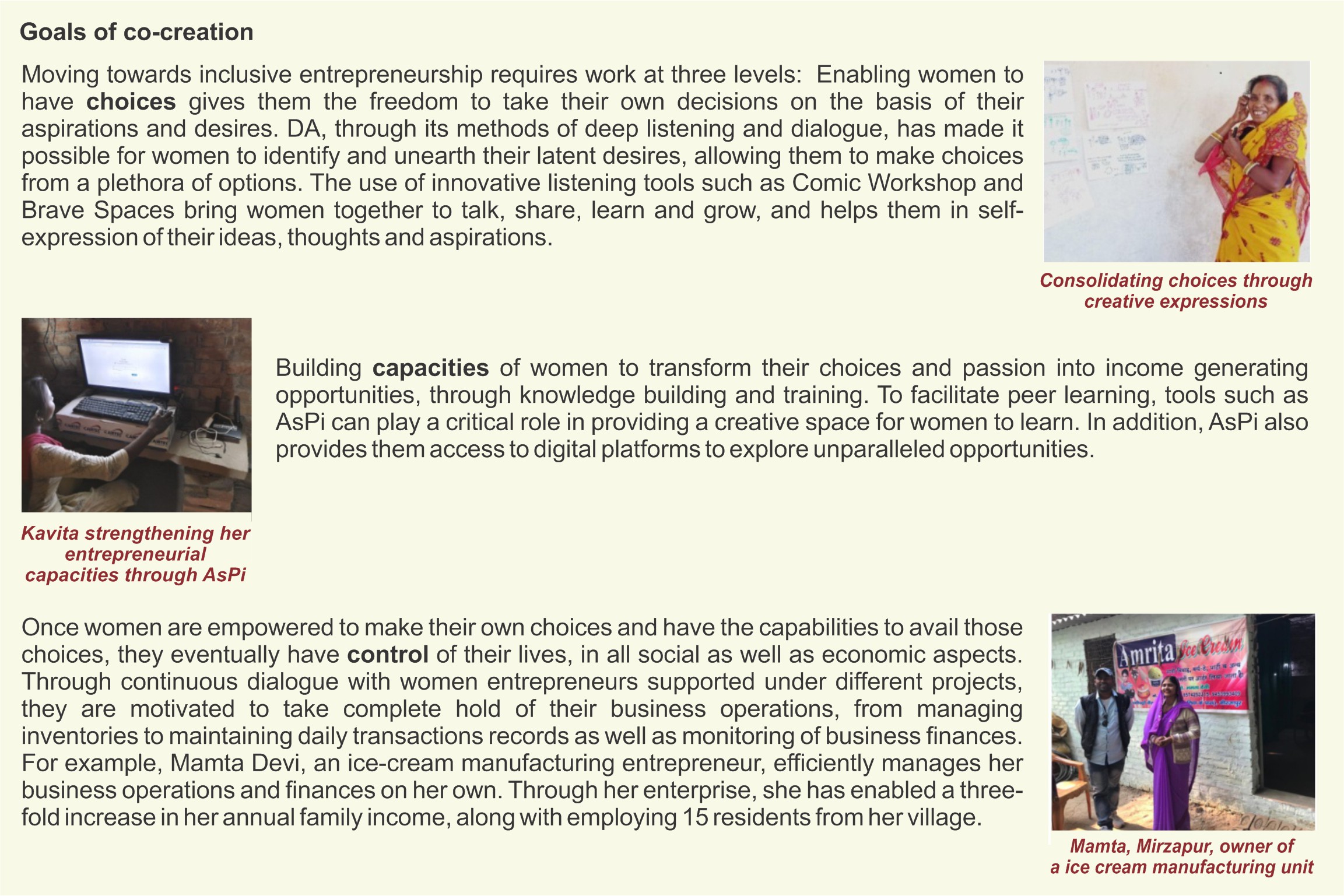|
Women in our society wear multiple hats, playing roles of a mother, sister, daughter or wife, among many others. Despite these multiple responsibilities, they are devoid of decision-making power beyond their households. This is reflected by the fact that 73.5% of women are currently not working but would be interested in taking up career opportunities1. These are the women who cannot disregard their household duties and can only pursue opportunities that allow them enough flexibility between paid and unpaid work. Enabling women to understand and realise their potential paves the way towards an empowered society, which has been the focus area of the DA’s programmes. Over the last 40 years, DA has determined three major approaches for including women: overcoming socio-cultural barriers, building new models and catering to specific ambitions articulated by women. Through DA’s social innovation processes adopted in initiatives for inclusive entrepreneurship, over 900 women-owned enterprises have been set up and supported in the last one year, leading to livelihood generation for more than 2,500 individuals. Defying the top-down approach of handing over solutions to women, there has been a continuous focus on designing and co-creating women’s futures with them, through programmes such as Work4Progress and HSBC-EE. Such initiatives have not only given them the freedom to access their choices, but have also built their capacities to transform their choices and aspirations into entrepreneurial opportunities, thereby giving the control of their lives back in their hands. Through this intervention, DA envisions to create ‘change agents’ in the communities that inspire many other women to take hold of their decisions and fulfil their aspirations.
Through these three goals, a ripple effect has been created in the ecosystem, with many women entrepreneurs setting up non-traditional enterprises and coming out as change agents for their community. Women entrepreneurs such as Meera Devi, who runs an e-rickshaw, Kajal Parihar, who opened the first women-led information kiosk in her village, Seema Devi, who repairs electronic devices, and many more defy the socio-cultural norms and exemplify that entrepreneurship has the potential to transform aspirations into economic empowerment. One such story of resilience and success is of Ruby, a business correspondent (BC) Sakhi from Chirgaon, Jhansi.
Way forward In the current portfolio of projects, DA will be working on the overall development of the three pillars: the entrepreneur, the enterprise and the ecosystem. Our approach will continue focussing on the power of collaborative action, to co-create more solutions with the community, thereby empowering women entrepreneurs with access to choices and capacities to create their futures with their own hands. Endnote:
Ankita Pant
Muskan Chawla
Supriya Shukla |

